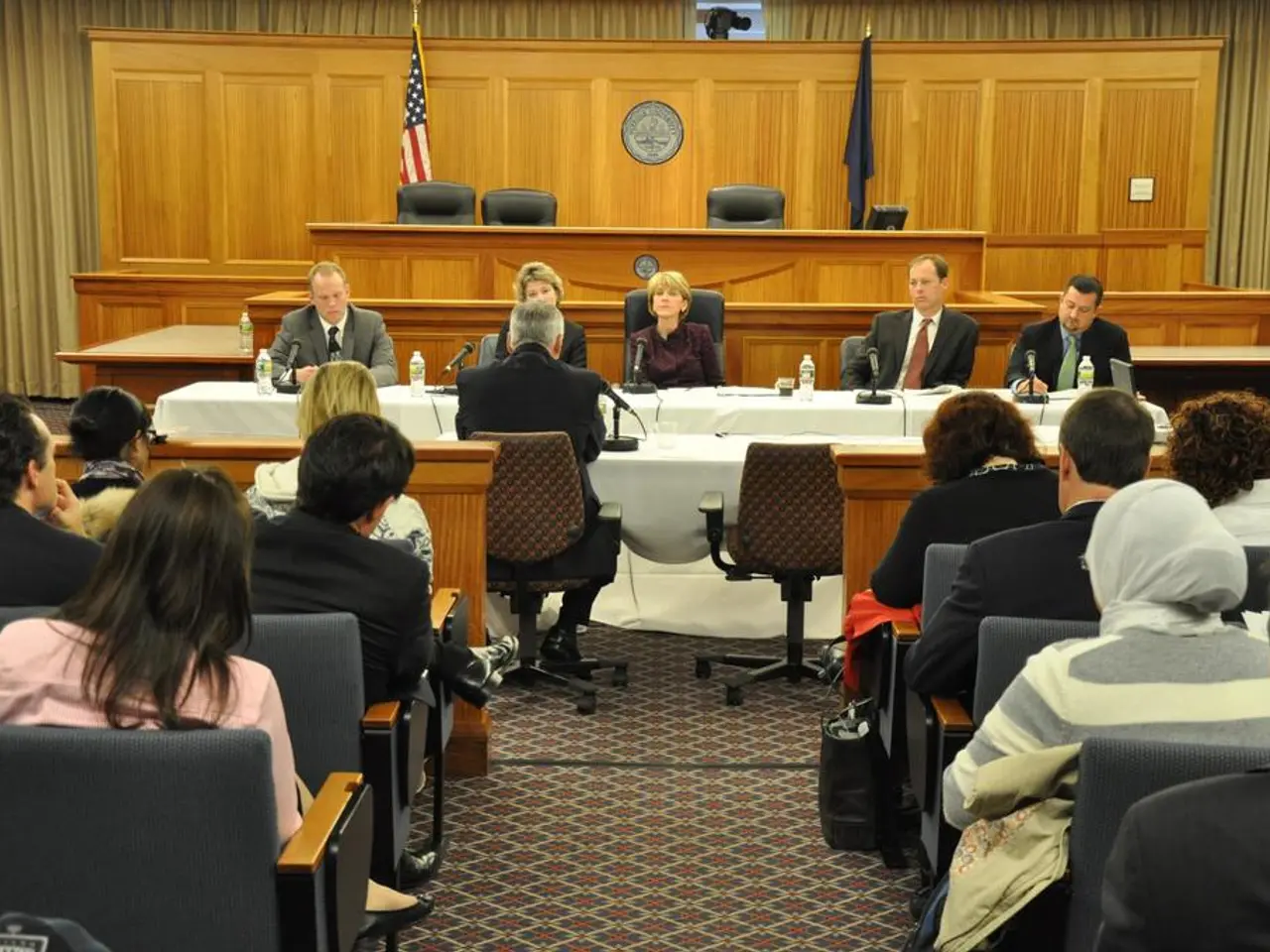Finland assumes presidency of the Baltic Sea Council from Germany
During Germany's presidency of the Council of the Baltic Sea States (CBSS) in 2023, several significant initiatives were undertaken to foster cooperation and address pressing issues in the region.
One key focus was the promotion of youth participation. A project workshop in Berlin saw young adults brainstorming concrete ideas to combat disinformation, boost the involvement of young people in civil protection, and prevent and detect human trafficking. The youth organizations that prepared the "CBSS Youth Ministerial" event in May 2023 in Berlin were not specified, but five young participants presented the event's results to the foreign ministers in Wismar.
Another major focus was the expansion of offshore wind energy. The Federal Foreign Office held the Baltic Offshore Wind Forum on May 9, 2023, to exchange views on the topic. The Baltic Council members committed to ambitious expansion targets for offshore wind in the Baltic Sea, aiming to increase the offshore wind power capacity sevenfold by 2030. The Federal Foreign Office also advocated for the establishment of the Baltic Sea Region Youth Forum (BSRYF), which develops and organises various formats for youth participation in offshore wind energy projects.
The challenge of clearing conventional World War II munitions and chemical warfare agents from the floor of the Baltic Sea was also addressed during Germany's presidency. A significant amount of these munitions (400,000 tons) and chemical warfare agents (around 40,000 tons) pose a threat to both humans and the environment. In response, Germany launched an immediate program of 100 million euros for the clearance of munitions in the North and Baltic Seas.
The Baltic Council, a forum for political dialogue and practical cooperation in the region, re-established itself as a platform for trust-building exchange during Germany's presidency. The meeting of foreign ministers of the Baltic Council took place on June 1 and 2 in Wismar. Discussions during the meeting included resilience, renewable energies, and the clearance of munitions in the Baltic Sea. The concluding declaration of the Baltic Council meeting in Wismar recognized the munitions issue in the Baltic Sea as a regional problem for the first time, emphasizing the need for cross-border and international cooperation to solve the challenge.
A multidisciplinary exchange with experts from various fields was held in Kiel in December 2022 during Germany's presidency. The expansion of offshore wind energy was a key focus during Germany's presidency, with the Baltic Council members emphasizing the security policy necessity of expanding offshore wind energy in the Baltic Sea in the "Berlin Declaration."
In conclusion, Germany's presidency of the CBSS focused on three key areas: the clearance of munitions in the Baltic Sea, the expansion of offshore wind energy, and the promotion of youth participation. These initiatives underscore Germany's commitment to a sustainable and secure future for the Baltic Sea region.
Read also:
- "Examination of Children from Family Backgrounds Laced with Addiction: A Focus at the 'Memories of a Forgotten Childhood' Film Screening"
- Treasured Institution, the Smithsonian, Unfalteringly Unscathed by Alterations [column]
- François Bayrou, in a recent disclosure by Mediapart, undertook a renovation project on his city hall office in Pau, costing around €40,000.
- Proposal for a Commission Directive forthcoming








